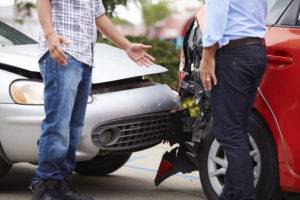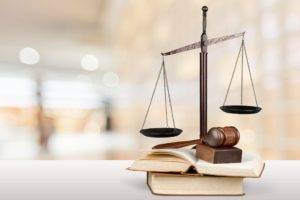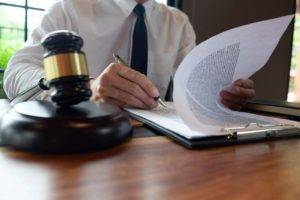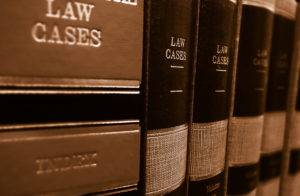A slip-and-fall case in Florida can often settle after about nine to 12 months.
These cases are more likely to settle within that time frame after the plaintiff has completed their medical treatment. Cases involving slip-and-fall injuries sustained in accidents stemming from negligence are generally easy to settle as long as the plaintiff has ample evidence. If the person’s injuries are complex and other factors are in place, it can take longer than one year to settle the case. In some cases, a settlement may come earlier, especially if an insurance company is involved and wants to avoid negative publicity.
What Is Considered Slip-and-Fall in Florida?
In Florida, a slip-and-fall is any accident where a person slips and falls on wet, slippery, sticky or icy conditions, trips over obstacles or clutter or falls due to a dangerous condition inside a premises or outside the property. The dangerous condition must be something the property owner or manager knew about and should have reasonably known could and would lead to an accident resulting in injuries.
Need free legal help in Florida?
We specialize in personal injury claims.

Time Frame for Settlements in Florida
Many personal injury claim settlements in Florida take anywhere from nine to 18 months. However, the length of time a settlement is actually reached depends on different factors, including the severity of the plaintiff’s injuries, the nature of the situation that led to their accident and how much evidence they have to back up their claim.
What Is the Average Settlement Amount for Slip-and-Fall Cases in Florida?
There is no true average settlement amount for Florida slip-and-fall cases. This is because no two cases are exactly alike. However, many people who suffer injuries from slip-and-fall accidents receive settlements ranging from about $45,000 to $850,000.
Why Do Slip-and-Fall Cases in Florida Take So Long to Settle?
Florida slip-and-fall cases can take a long time to settle, but each case is different. According to Florida Statute 768.81, an injured plaintiff must have sufficient evidence to prove negligence on the part of the defendant to ensure a faster settlement compared to one that takes a longer time.
Need free legal help in Florida?
We specialize in personal injury claims.

Factors That Could Affect Settlement Timeframes for Long Slip-and-Fall Cases in Florida
Different factors may affect the timeframe for a settlement in a long Florida slip-and-fall case. They include the severity of injuries, multiple defendants, disputes over liability, preexisting medical conditions, insurance coverage disputes and financial constraints.
Severity of Injuries
The severity of the victim’s injuries is a major factor in how quickly they receive a settlement for a slip-and-fall accident. The worse the injuries, the more likely it is that a settlement will come faster. However, more complex injuries may result in a settlement coming after a longer period of time.
Multiple Defendants
In some cases, there may be multiple defendants that can be held liable in a slip-and-fall case. This can impact the length of time before the plaintiff recovers a settlement. Multiple parties can be named as defendants when all have exhibited negligence leading to a person’s injuries. Each defendant would also be attributed a certain percentage of fault, which can affect the settlement timeframe.
Dispute Over Liability
Sometimes, a dispute over liability arises over a slip-and-fall case. When this happens, the plaintiff might have an uphill battle proving that they suffered the accident and injuries because a property owner, business owner or manager should have known about the dangerous condition that caused it. In this situation, even with a successful outcome in the case, the plaintiff’s settlement can be delayed.
Preexisting Medical Conditions
If a person suffers injuries in a slip-and-fall and files a lawsuit that’s ultimately successful, a settlement might take longer if they have a preexisting medical condition. This is because the defendant could dispute the person’s injury and claim they already had it before the incident.
Insurance Coverage Disputes
Sometimes, the damages an injured person seeks from a slip-and-fall case might exceed the insurance coverage held by the liable party. This can lead to problems as the insurance company refuses to pay that extra amount. This can cause a settlement to come later.
Financial Constraints
If a plaintiff seeks damages for their slip-and-fall injuries directly from the liable party, it might cause a problem due to financial constraints. The property owner or manager may not have the amount of money the plaintiff seeks for their settlement, which might mean a delay.
General Overview of the Settlement Process for a Slip-and-Fall Case in Florida
There is a specific settlement process for Florida slip-and-fall cases. The steps include an investigation and demand letter, negotiations, settlement or trial preparations, mediation and/or trial.
Investigation and Demand Letter
Depending on the circumstances of a slip-and-fall matter, an investigation may be necessary. If there are any questions about the plaintiff’s injuries, their attorney can have an investigative team perform an investigation to get all the facts. The plaintiff can send the defendant a demand letter before filing a lawsuit. In some cases, the demand letter succeeds and the case is quickly settled. In other instances, the defendant may reject the settlement requested in the letter, which allows the plaintiff an opportunity to file a personal injury lawsuit.
Negotiations
Sometimes, after a demand letter is sent, the plaintiff’s attorney and the defense attorney or the defendant’s insurance company will negotiate a settlement. According to Injury Claim Coach, it’s crucial to plan a strategy ahead of negotiations. If an insurance adjuster is involved, asking for a higher amount to start is better. The adjuster will likely make a lowball offer that you can counter. You should also have a minimum settlement amount in mind, but this should never be less than what your claim is worth.
Settlement or Trial Preparations
Some slip-and-fall cases are easily closed as a settlement is quickly reached. Others are not so quickly resolved, which results in the case going to trial. All the evidence is presented and a jury or judge will determine whether the defendant is liable. If the property owner or manager is found to be responsible, a settlement amount will be awarded to the plaintiff.
Mediation
If the parties in a slip-and-fall case are willing to work together to reach a settlement that’s fair and reasonable, they can choose mediation to resolve things. Mediation allows both or all parties to compromise to reach a satisfactory middle ground that works for everyone. It also allows them to stay out of court and avoid a potentially long, contentious battle.
Trial
If mediation isn’t an option, the slip-and-fall case goes to trial. A judge or jury hears all the evidence and determines the outcome of the case. If they find in the injured plaintiff’s favor, a settlement will be decided.
Common Slip-and-Fall Accidents in Florida
There are certain slip-and-fall accidents that are common in Florida. They include slipping on wet floors, tripping on uneven surfaces, slipping on snow or ice, falling due to poor lighting, slipping on loose rugs or mats and falling from ladders or stools.
Slipping on Wet Floors
One of the most common ways slip-and-fall accidents occur in Florida is when a person slips on a wet floor. This can happen when a floor was recently mopped, liquid is spilled or wet conditions from outside are tracked indoors. People can fall and suffer various injuries based on how they land.
Tripping on Uneven Surfaces
Uneven surfaces indoors or outdoors can lead to people tripping and falling, suffering injuries. This dangerous condition can be present outside a property or inside. Uneven pavement that’s part of the property, loose or uprooted floorboards and broken steps on stairways are examples of uneven surfaces that can lead to falls.
Slipping on Snow/Ice
If the area directly outside a property is covered with snow or ice, it can lead to a slip-and-fall accident. The property owner or manager is responsible for ensuring that the area is kept clear to prevent this from happening.
Falling Due to Poor Lighting
Lighting inside and outside residential and business property must be well-lit so that residents, employees and visitors can see where they’re going. If the lighting is poor, it can lead to slip-and-fall accidents and injuries.
Slipping on Loose Rugs or Mats
Rugs, carpeting and mats must be secured in place on floors to prevent slip-and-fall accidents. However, when these items are loose, they can cause such accidents and leave people suffering injuries. In that situation, the property owner or manager can be held liable.
Falling from Ladders/Stools
Another common means of slip-and-fall accidents in Florida involves falls from ladders or stools. Often, those injured from such incidents are employees who have to reach heights to reach for items or make repairs.
Property Owner’s Responsibilities in Florida
Property owners in Florida have certain responsibilities. This includes legal obligations of property owners and addressing dangerous conditions on their premises.
Legal Obligations of Property Owners
Florida property owners are responsible for keeping their property or premises in reasonably safe condition to prevent visitors from suffering accidents and injuries. This means they must eliminate any known dangerous conditions by making repairs or cordoning off areas to be fixed later. Common areas should be well-lit, clean and clear of clutter or obstacles.
Dangerous Conditions on Premises
Property owners in Florida must eliminate all dangerous conditions on their premises. Anything known to be dangerous should be repaired or removed to prevent a potential slip-and-fall accident that can cause visitors injuries.
Frequently Asked Questions
What Is the Average Payout for a Slip-and-Fall in Florida?
There is no set average payout for a Florida slip-and-fall case because each one is unique. However, depending on the injury type and severity of injuries, the average settlement might range from as low as around $21,000 to as high as $15 million.
How Much Are Most Slip-and-Fall Settlements?
Most slip-and-fall settlements fall within the $10,000 to $50,000 range.
How Long Does it Take to Get a Settlement Check in Florida?
It can take around four to six weeks to get a settlement check in Florida.
How Are Personal Injury Settlements Paid Out in Florida?
When you receive a personal injury settlement in Florida, you get the check from your attorney minus legal fees, court costs and other expenses.
Does Florida Pay for Pain and Suffering?
Yes, Florida pays for pain and suffering. This includes an injured victim’s physical pain as well as mental, emotional and psychological pain stemming from a situation resulting in personal injury.
What Is the Least Amount of a Personal Injury Settlement?
Although there is no guaranteed personal injury settlement amount, those ranging on the lower end are often at least in the lower tens of thousands region. Of course, all cases are different, so what one plaintiff recovers in a personal injury settlement may be vastly different from the next person’s settlement.
What Is the Highest Personal Injury Settlement?
According to Oasis Financial, the highest personal injury settlement was $150 billion, which was awarded after a child was sexually assaulted and set on fire in Texas by a teen.
What Is the Largest Slip-and-Fall Settlement in Florida?
According to Top Verdict, the largest slip-and-fall settlement in Florida was $1,875,000, which was awarded in the case Salmon Piza v. Danto Builders, LLC, et al.
Can I Sue My Employer for a Slip-and-Fall in Florida?
You cannot sue your employer for a slip-and-fall accident in Florida unless they deliberately do something to cause your injury. However, you can take other actions like filing a workers’ compensation claim to recover benefits if you are unable to work while recovering.
How Long Does it Take to Negotiate a Settlement in Florida?
In most cases, it takes around two to four weeks to negotiate a settlement in a Florida personal injury case. If negotiations are successful, a settlement is reached and the case does not have to progress to trial.
How Long Does a Personal Injury Settlement Take in Florida?
Florida personal injury cases are all different, so a settlement can take varying times. Depending on the circumstances, reaching a settlement for a Florida personal injury claim could take anywhere from nine to 18 months. Different factors determining how long it takes include type of injury, severity of injury, whether an insurance company is involved and the amount of evidence available in the case.
How Much Do Lawyers Take from a Settlement in Florida?
According to the Florida Bar, lawyers take around 33% or 40% of a settlement from personal injury cases as long as the settlement is up to $1 million. If the damages exceed that amount but range between $1 million and $2 million, the attorney takes 30%. For settlements greater than that, a lawyer may take 20% to satisfy their contingency fee.
How Is Pain and Suffering Calculated in Florida?
In Florida, pain and suffering is calculated by using the multiplier method. This uses a number ranging from 1.5 and 5 based on the severity of the plaintiff’s injuries. Economic damages are multiplied by the number chosen to determine the amount that noneconomic damages are worth.
Do You Have to Pay Taxes on Accident Settlements in Florida?
Florida accident settlements are not subject to taxes.
Need free legal help in Florida?
We specialize in personal injury claims.






